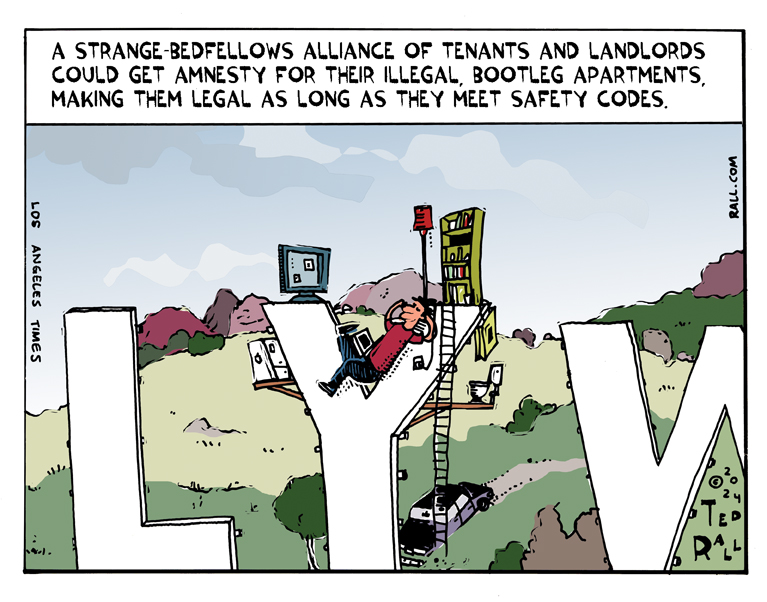The DMZ America Podcast’s Ted Rall (on the Left) and Scott Stantis (on the Right) are joined by syndicated columnist Clarence Page of the Chicago Tribune to discuss the despondent state of the Democratic Party in the wake of their defeat. Progressives like Bernie Sanders say the party erred in neglecting the working class, moderates think the party appears too “woke” for mainstream Americans and it’s hard to reconcile Biden and the Democrats’ criticism of Donald Trump as dishonest with his decision to pardon Hunter Biden despite numerous categorical denials that he would do so. Where does the Democratic Party go from here? Is “resistance” possible and, if so, what will it look like?
The TMI Show Ep 29: “Hunter Biden Pardoned Despite President’s Repeated Promises”
President Joe Biden and his press secretary and other surrogates have repeatedly told the media that he would not pardon his son Hunter Biden on federal tax evasion and gun charges under any circumstance whatsoever. Nothing has substantially changed, yet the president has gone ahead and issued the most controversial presidential pardon since Gerald Ford let Richard Nixon off the hook. Moreover, he has used language familiar to those who follow President-elect Donald Trump to excuse his brazen self dealing and lying, justifying his actions by accusing the Department of Justice of having been politicized.
What does it mean when the standard bearer of the Democrats, who claim that they differ from Trump because they are truth tellers, is so willing to make a mockery of the truth? What message are we to take from the fact that both political parties say that the DOJ is politically compromised? What if anything does this do to the Democratic Party brand? What should go Biden have done differently?
Attorney and historian Tyler Nixon joins the TMI Show’s Ted Rall and Manila Chan to discuss the political and cultural implications of the Hunter Biden pardon.
LOS ANGELES TIMES CARTOON: Bootlegging the Bootleggers (Apartment Edition)
Every year in Los Angeles, the city housing department learns that 600 to 700 enterprising urban homesteaders have built “bootleg apartments” without bothering to obtain permits. According to a Times piece by Emily Alpert Reyes, this activity has brought an “unusual alliance of landlords and tenants” who want the city to issue an amnesty for those units that conform to safety codes.
“Landlords argue that many of these nonconforming apartments are perfectly safe. And tenant advocates say they often provide rare patches of affordable housing in a city of whopping rents,” writes Reyes.
Current practice, Amos Hartson, chief counsel and director of legal services at Inner City Law Center, is to “evict tenants and rip out the unit” after they’re discovered. Both sides see this as a waste of perfectly good housing.
Reyes: “The details are still being worked out, but backers say the idea is simple: Landlords could come forwardand fix plumbing, wiring or other issues without enduring a lengthy, expensive process to comply with city codes. Tenants could avoid being displaced from decent apartments.”
Not everyone is cool with this. “If you follow this lawless path, you’d very quickly see the quality of life deteriorate for residents in lawful, permitted apartments,” said Steve Sann, chairman of the Westwood Community Council. “It’s a fiction to say you can cram more people in the same space and nobody loses out.”
Though seemingly novel, there are precedents for retroactively legitimizing living spaces that began outside the normal legal strictures. New York’s SoHo district, now a tony tourist neighborhood choking with high-end boutiques, was populated during the bad old 1980s days by artists roughing it in former industrial lofts, sometimes without running water, much less certificates of occupancy. A “Loft Law” allows people who can prove they’ve been in their now-seven-figure spaces since the “C.H.U.D.” period to keep them. Also in New York, squatters have occasionally been allowed to keep “their” homes — sometimes even collecting city loans to help them make improvements.
In Los Angeles, the police won’t arrest a squatter unless there’s proof a crime has been committed — and he can only be evicted as the result of a civil proceeding, which can take many months. But that’s an ad hoc, not a systemic, policy.
Which brings us to Sann’s point. If anyone can create a bootleg apartment anywhere he or she wants, aren’t those of us who pay rents and mortgages — not to mention real estate taxes — suckers to play by the rules? The median price of a three-bedroom house in L.A. county is $668,000. Wouldn’t it be smarter to set ourselves up anywhere we want, then get legal later?
For this cartoon, I fantasize about moving into the ultimate view, from the top of the Hollywood sign. Because the setting doesn’t have a lot of intrinsic detail, I worked a little harder than usual on the foliage.

